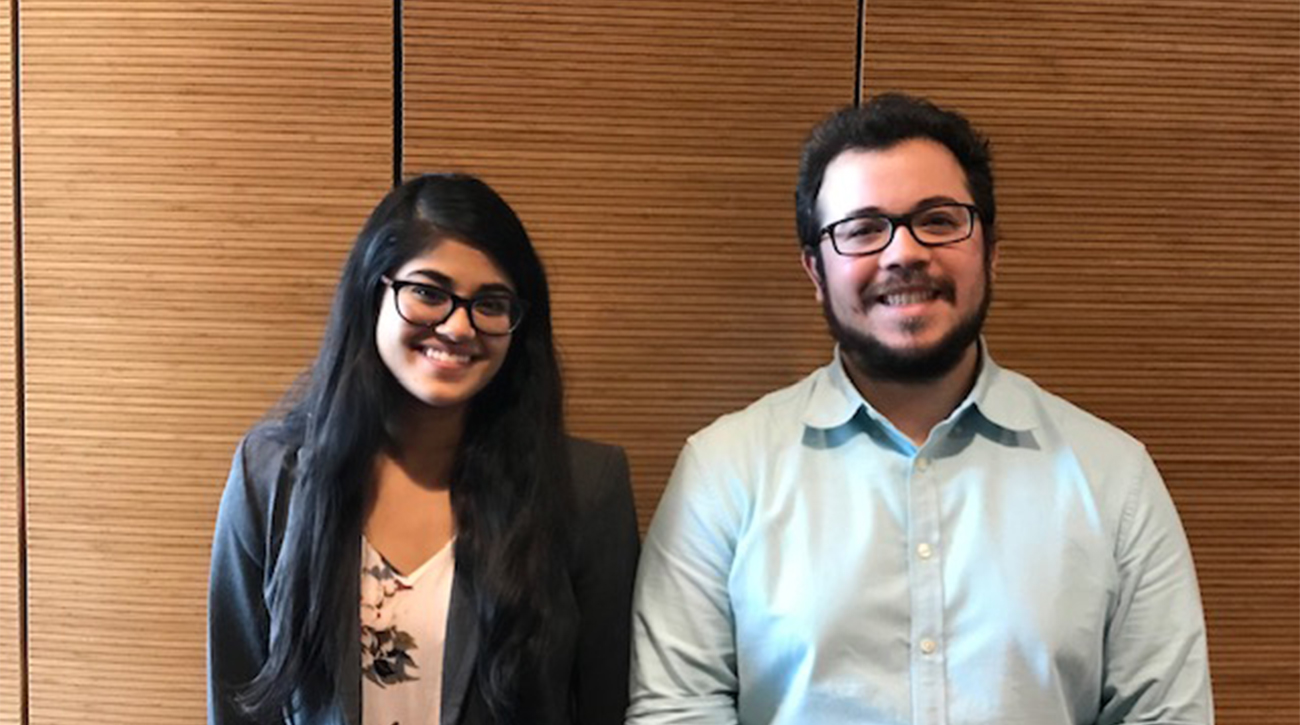Last fall, two first-year students in the George Washington University Milken Institute School of Public Health (Milken Institute SPH) Master of Health Administration (MHA) program, Samuel N. Meyers and Bushra Islam, decided to team up to participate in the case competition put on annually by the nonprofit HIMMS organization. Their goal was to learn more about the application of health information technology, and the third-prize award they earned is a testament to their success.
Case competitions are popular among MHA students because of the kind of hands-on experience that participation can allow. HIMMS is focused on better health through information and technology, and the HIMSS Student Case Competition provides opportunities for teams of students to demonstrate proficiency in their understanding of health information technology.
Meyers and Islam's decision to team up was inspired in part by their shared science background: both had triple undergraduate majors in biology, psychology, and neuroscience. The case challenged the two to make decisions related to two health systems located in Colorado. One was Centura Health, a major accountable care organization health system located in Denver. The second was a medical center in Durango, a rural area.
“It was our job to determine how we could utilize health information technology to help these systems work together to provide better care, primarily by addressing the Medicare population in Durango,” Meyers explained.
After they received their case, Meyers and Islam said they talked a lot about health disparities in Durango, as well as the mental health crisis that has been affecting the area in recent years. “We also discussed the opioid epidemic's impact on the area and how telemedicine could be used as a cost-effective solution to all of these problems,” Meyers said.
The GW MHA students decided to propose utilizing telemedicine to provide specialty services to the Durango medical center by using Centura's expansive access to specialty physicians. The approach laid out in their 10-page proposal, they explained, allows the rural medical system to gain access to a wide selection of specialist physicians while at the same time increasing reimbursement for Centura.
“We were honored to be selected as finalists to present our research and solution virtually via a Webex during our final exam week,” Meyers said. As finalists, they gave a 45-minute presentation and fielded questions for ten minutes. “I am sure that our ability to demonstrate that both systems in Denver and Durango benefited from our solution helped us in the judging!” Meyers added.
Meyers and Islam said that they definitely planning to participate in more case competitions during the remainder of their time as an MHA students because they value how much they were able to learn through the experience. “I would unreservedly recommend participating in a case competition to any MHA student,” Meyers said.


